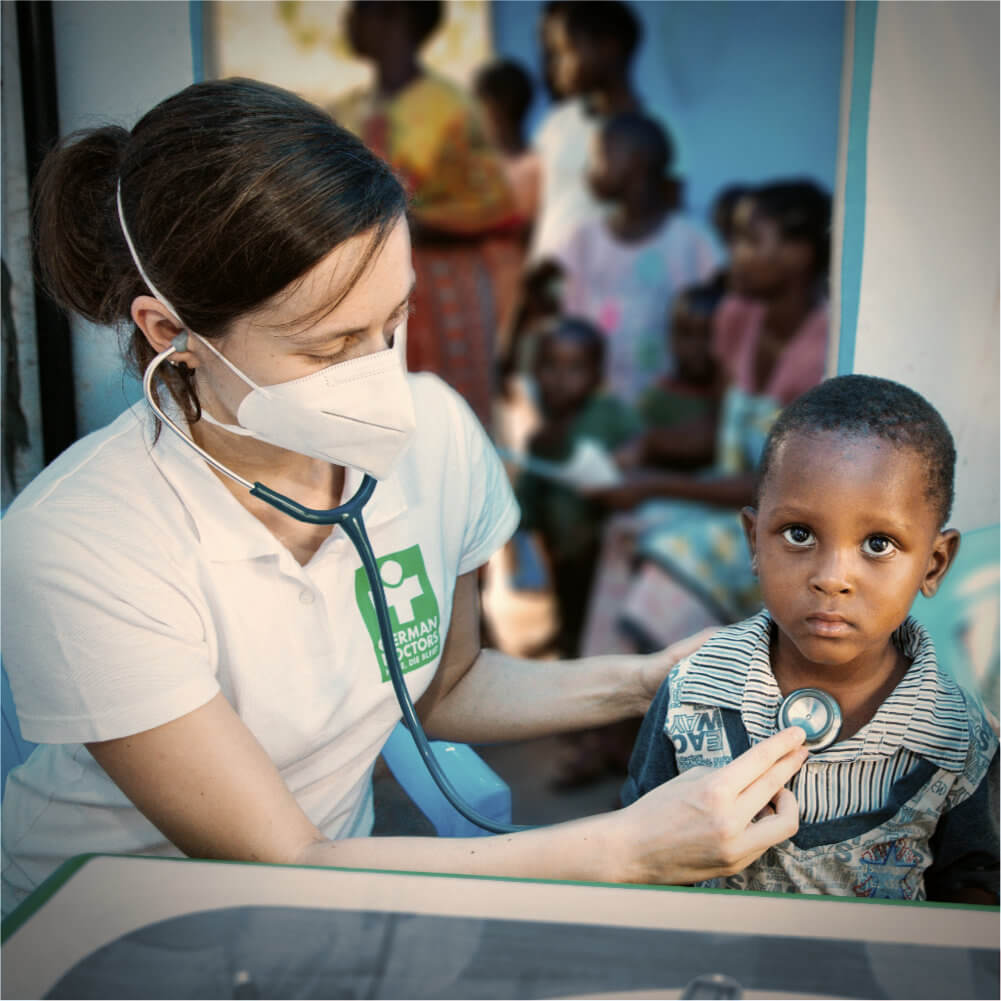Our Dhaka Project
Overview
The seamstresses’ district
Innumerable textile factories, kilometer-long, slum-like settlements, environmental pollution, prostitution, drug criminality, and child labor. The inhabitants struggle with immense problems in our project area, Savar, located north of Dhaka. In the 1980s, investors built huge textile factories there, although the region was not prepared for the many people who streamed into the suburbs from rural areas looking for work.
Only few find work, and many must earn a living from prostitution or become addicted to drugs. More that 40 percent of the people living here are illiterate, and many families earn less than 5,000 taka a month, which is equivalent to 50 euros.






Hand in hand with Caritas Bangladesh
In this project we are fortunate to be able to combine medical with social aid, as we work closely together with Caritas Bangladesh, which has a good network and already has several social aid projects.
The German Doctors guarantee the medical component for the needy. Two volunteer mission doctors have cared for about 80 patients a day in our three outpatient clinics, which have been visited by our team on fixed days since July 2019.
The seamstresses’ district
Innumerable textile factories, kilometer-long, slum-like settlements, environmental pollution, prostitution, drug criminality, and child labor. The inhabitants struggle with immense problems in our project area, Savar, located north of Dhaka. In the 1980s, investors built huge textile factories there, although the region was not prepared for the many people who streamed into the suburbs from rural areas looking for work.
Only few find work, and many must earn a living from prostitution or become addicted to drugs. More that 40 percent of the people living here are illiterate, and many families earn less than 5,000 taka a month, which is equivalent to 50 euros.
Hand in hand with Caritas Bangladesh
In this project we are fortunate to be able to combine medical with social aid, as we work closely together with Caritas Bangladesh, which has a good network and already has several social aid projects.
The German Doctors guarantee the medical component for the needy. Two volunteer mission doctors have cared for about 80 patients a day in our three outpatient clinics, which have been visited by our team on fixed days since July 2019.
Dates & Facts
Project start: 1989, with new mission sites since 2019
Number of doctors: there are generally two German doctors on site.
Missions: 548 volunteer missions since the project began
Patients contacts: approximately 17,000 treatments annually
Partner: our project partner is Caritas Bangladesh.
Structure: Caritas Dhaka is in charge of the project as the responsible organization. People working in the project are Caritas employees. The project has three outpatient clinics in the Savar region, which are visited on fixed days by German doctors and a team of indigenous colleagues. Consultations are held once or twice a week at every project site.


Mission sites: The Savar region located north of Dhaka in Bangladesh includes three outpatient clinics, in Jamgara, Zirabo, and Vadail.
Commonest health problems: Gastro-intestinal diseases, bronchitis, chronic obstructive pulmonary disease (COPD), asthma, diabetes, skin diseases, sexually-transmitted diseases, and bone-and-joint pain (caused by hours of sitting at the sewing machines).
Project start: 1989, with new mission sites since 2019
Number of doctors: there are generally two German doctors on site.
Missions: 548 volunteer missions since the project began
Patients contacts: approximately 17,000 treatments annually
Partner: our project partner is Caritas Bangladesh.
Structure: Caritas Dhaka is in charge of the project as the responsible organization. People working in the project are Caritas employees. The project has three outpatient clinics in the Savar region, which are visited on fixed days by German doctors and a team of indigenous colleagues. Consultations are held once or twice a week at every project site.
Mission sites: The Savar region located north of Dhaka in Bangladesh includes three outpatient clinics, in Jamgara, Zirabo, and Vadail.
Commonest health problems: Gastro-intestinal diseases, bronchitis, chronic obstructive pulmonary disease (COPD), asthma, diabetes, skin diseases, sexually-transmitted diseases, and bone-and-joint pain (caused by hours of sitting at the sewing machines).
Outpatient clinic
Little help from the state
As in all our projects, our priority here is to treat people living at the edges of society. Aside from seamstresses and tailors in the textile factories, who cannot afford medical provision or are excluded from other healthcare facilities, our patients especially include sex workers, drug addicts, and transgender individuals.
They are often not accepted in the conventional state healthcare facilities. Infectious diseases, like hepatitis and pulmonary diseases, as well as sexually-transmitted infections, dengue fever, diarrhoeal diseases, and undernourishment are common diagnoses in the Savar and Ashulia regions.



Improving the medical infrastructure
We chose three sites for our outpatient clinics to improve the medical situation in the Savar region. These are located quite centrally so that the people working in the textile factories can visit our outpatient clinics during their breaks. This is important, as diseases are often neglected out of fear of losing one’s job. Each site is visited by a team of doctors, interpreters, pharmacists, and nurses once or twice a week.
When necessary, we refer patients to the rehabilitation center (CRP) so that they can get appropriate therapy there. In the meantime, we have a physiotherapist in the team who offers physiotherapy in individual or group sessions three days a week.
Little help from the state
As in all our projects, our priority here is to treat people living at the edges of society. Aside from seamstresses and tailors in the textile factories, who cannot afford medical provision or are excluded from other healthcare facilities, our patients especially include sex workers, drug addicts, and transgender individuals.
They are often not accepted in the conventional state healthcare facilities. Infectious diseases, like hepatitis and pulmonary diseases, as well as sexually-transmitted infections, dengue fever, diarrhoeal diseases, and undernourishment are common diagnoses in the Savar and Ashulia regions.
Improving the medical infrastructure
We chose three sites for our outpatient clinics to improve the medical situation in the Savar region. These are located quite centrally so that the people working in the textile factories can visit our outpatient clinics during their breaks. This is important, as diseases are often neglected out of fear of losing one’s job. Each site is visited by a team of doctors, interpreters, pharmacists, and nurses once or twice a week.
When necessary, we refer patients to the rehabilitation center (CRP) so that they can get appropriate therapy there. In the meantime, we have a physiotherapist in the team who offers physiotherapy in individual or group sessions three days a week.
Living Conditions
Struggle for survival in Dhaka’s textile factories
The Savar region is located north of Dhaka, the capital of Bangladesh. Innumerable textile factories characterize the region and cause massive difficulties. Air and water pollution are extensive in the entire region. Many streams and rivers are discolored by bright-colored dyes which are poured into the environment by the factories.
Especially young people, who grew up in protected environments and moved to the region looking for work, are overtaxed by life in the city. Those who do not find work directly in the textile factories are in danger of ending up on the streets – particularly because they must send money home to their families.




Prostitution and drug addiction
Many young women and men who cannot find any other way to earn a living turn to prostitution. Sex work does not take place in protected rooms, but on the street and in their customers’ huts. Many people who come to Savar in hopes of finding work also slide into the vicious cycle of desperation and drug addiction. The drug market is extensive, and there are hardly any facilities where people can find help and support. The live on the edges of society in Bangladesh and are turned away from many state institutions or not treated appropriately.
Especially transgender people have a hard lot in Bangladesh. They experience exploitation, especially sexual, and social exclusion every day. We, together with Caritas, treat these people in our outpatient clinics and, when necessary or desired, refer them to other institutions and projects.
Struggle for survival in Dhaka’s textile factories
The Savar region is located north of Dhaka, the capital of Bangladesh. Innumerable textile factories characterize the region and cause massive difficulties. Air and water pollution are extensive in the entire region. Many streams and rivers are discolored by bright-colored dyes which are poured into the environment by the factories.
Especially young people, who grew up in protected environments and moved to the region looking for work, are overtaxed by life in the city. Those who do not find work directly in the textile factories are in danger of ending up on the streets – particularly because they must send money home to their families.
Prostitution and drug addiction
Many young women and men who cannot find any other way to earn a living turn to prostitution. Sex work does not take place in protected rooms, but on the street and in their customers’ huts. Many people who come to Savar in hopes of finding work also slide into the vicious cycle of desperation and drug addiction. The drug market is extensive, and there are hardly any facilities where people can find help and support. The live on the edges of society in Bangladesh and are turned away from many state institutions or not treated appropriately.
Especially transgender people have a hard lot in Bangladesh. They experience exploitation, especially sexual, and social exclusion every day. We, together with Caritas, treat these people in our outpatient clinics and, when necessary or desired, refer them to other institutions and projects.


















